Are you tired of dealing with clogged drains in your sink?
There are several common causes, from food waste to grease buildup, that can lead to this frustrating issue.
In this article, we will explore why it is important to clean drains in the sink, the key causes of clogged drains, and how you can prevent them from happening in the future.
We will also discuss the signs of a clogged drain and provide you with effective methods to clean it, whether you opt for a DIY approach or seek professional help.
Whether you are facing slow drainage or foul odors, we have got you covered with practical tips and solutions to keep your sink running smoothly.
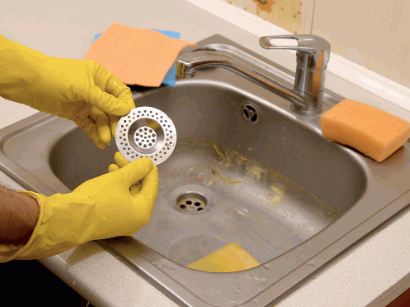
Why Is It Important To Clean Drains In Sink?
Regularly cleaning drains in the sink is crucial for maintaining a healthy and hygienic kitchen environment. Clogged drains can lead to foul odors, slow drainage, and even water backup, causing inconvenience and potential health hazards.
By implementing a routine drain cleaning schedule, you can prevent blockages from accumulating over time. This proactive approach not only helps in averting unpleasant smells but also ensures the smooth flow of water in your sink, promoting overall household cleanliness.
Neglecting drain maintenance can result in a buildup of grease, food particles, and other debris, leading to more severe plumbing issues and costly repairs down the line. Therefore, prioritizing plumbing hygiene through regular maintenance is essential for the efficient functioning of your drainage system.
Uncover more: What Is The Average Cost Of Drain Cleaning
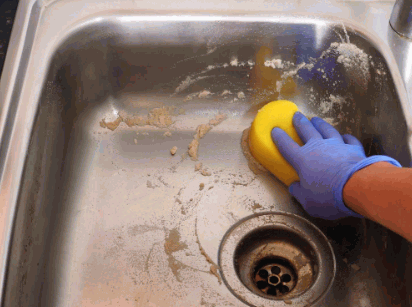
What Are The Causes Of Clogged Drains In Sink?
Clogged drains in the sink can be attributed to various factors, including the accumulation of food waste, grease buildup, hair entanglement, and the presence of foreign objects that obstruct the pipeline.
These blockages not only impede the smooth flow of water but also provide a breeding ground for bacteria and unpleasant odors in the kitchen area. It is crucial to address these clogs promptly to maintain proper hygiene standards.
DIY clog removal methods are effective in clearing these obstructions, ensuring that your pipes remain in optimal condition. By regularly taking care of your sink drains and being mindful of what goes down them, you can prevent major plumbing issues and costly repairs down the line.
Food Waste
One of the primary culprits behind clogged drains in sinks is the improper disposal of food waste, leading to the accumulation of gunk and debris that hinders fluid drainage in the piping system.
This issue can often result in slow-draining sinks, foul odors emanating from the pipes, and in worst cases, complete blockages that require professional intervention.
To tackle drain blockages caused by food remnants, it's crucial to adopt preventive measures such as installing drain guards to catch food particles before they enter the plumbing system. Regular hot water flushing and the use of homemade solutions like baking soda and vinegar can help dissolve organic build-up and keep drains flowing smoothly.
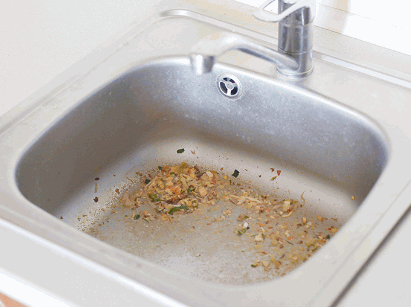
Grease Buildup
Grease buildup is a common cause of clogged drains in sinks, as the oily residue can solidify in the pipes over time, necessitating the use of chemical cleaners or specialized drain cleaning solutions for effective removal.
These hardened grease deposits can lead to slow-draining sinks, foul odors, and even complete blockages if left unaddressed. To tackle the challenge of grease accumulation in drain pipes, it is important to adopt safe cleaning practices that not only effectively dislodge the grease but also prevent harm to the environment.
Opting for eco-friendly drain cleaners or homemade solutions using ingredients like baking soda and vinegar can help break down the grease without relying on harsh chemicals. In addition, regular maintenance and preventative measures such as using sink strainers to trap food particles and grease can significantly reduce the likelihood of clogs occurring in the first place.
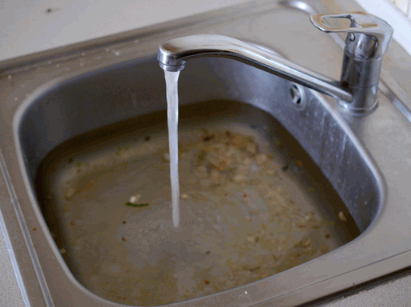
Hair And Soap Scum
Hair and soap scum can combine to form stubborn clogs in sink drains, necessitating the use of tools like a plumber's snake or a hair catcher to effectively remove the blockages and restore proper water flow.
These materials may seem harmless initially, but over time, they can create major plumbing issues. Soap scum can accumulate on the walls of pipes, reducing the flow of water and providing a breeding ground for bacteria. Hair, on the other hand, entangles with other debris, leading to blockages that can be tough to clear.
To prevent these problems, regularly using a hair catcher in your drains can significantly reduce the amount of hair that makes its way down the pipes. Investing in drain cleaning products specifically designed to dissolve soap scum can help maintain your drains' health and prevent future clogs.
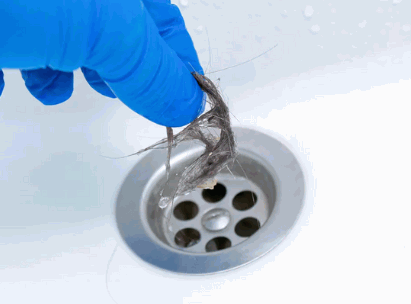
Foreign Objects
Foreign objects inadvertently introduced into sink drains can lead to blockages and require immediate attention to prevent potential backups or damage to the drainage system. Using tools like a snake or a plunger can help dislodge these obstructions effectively.
It is crucial to address drain blockages promptly to avoid emergency situations or costly repairs. Neglecting these issues can result in overflowing sinks, foul odors, and even structural damage to your plumbing system.
By taking proactive measures and using the appropriate tools, such as plungers or snakes, homeowners can often resolve minor blockages themselves. For stubborn obstructions that persist despite DIY efforts, it is advisable to seek professional help to prevent further complications and ensure the thorough clearing of the drain.
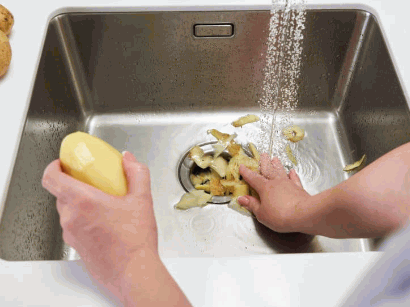
How To Prevent Clogged Drains In Sink?
Preventing clogged drains in sinks involves adopting proactive measures such as using drain strainers, avoiding pouring grease down the drain, regularly cleaning the sink stopper, and running hot water after each use to maintain optimal drainage conditions.
Regular maintenance of the P-trap is crucial in preventing blockages in sink drains. The P-trap is designed to catch debris and prevent it from traveling further down the pipe.
Homeowners can easily clean the P-trap by loosening the slip nuts with a wrench and removing any trapped debris. Practicing safe cleaning practices by using eco-friendly drain cleaners or a mixture of vinegar and baking soda can help dissolve buildup without damaging the pipes.
By implementing these simple yet effective tips, homeowners can ensure smooth and efficient sink drainage, avoiding costly repairs in the long run.
Use A Drain Strainer
Employing a drain strainer is an effective preventive measure to capture hair, debris, and other particles that could potentially cause blockages in sink drains, promoting routine care and preventing future maintenance issues.
By using a drain strainer on a regular basis, you can significantly reduce the likelihood of encountering clogged drains in your kitchen or bathroom. These strainers act as a barrier, trapping food scraps, soap scum, and other unwanted materials before they can accumulate and block the pipes.
To ensure the strainer remains efficient, it's important to clean it regularly by removing the collected debris. When selecting a drain strainer, opt for one with a fine mesh that can effectively capture small particles without impeding water flow. Investing in a high-quality strainer can save you time and money in the long run by preventing the need for costly repairs or professional plumbing services.
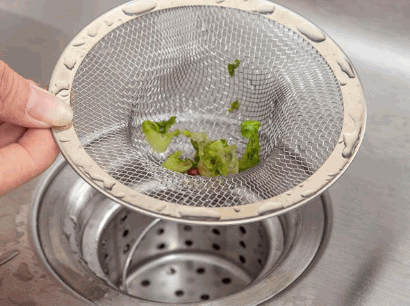
Avoid Pouring Grease Down The Drain
One crucial preventive measure to prevent clogged drains in sinks is to avoid pouring grease or oily substances down the drain, as they can solidify and accumulate, necessitating regular maintenance schedules to clean grease traps and maintain effective drainage.
Establishing a set maintenance routine for cleaning grease traps is key to ensuring the seamless flow of water through the plumbing system. Implementing eco-friendly practices not only aids in preserving the longevity of the pipes but also contributes to a sustainable environment. By taking these proactive steps, individuals can avoid costly repairs and potential environmental harm caused by neglecting proper grease disposal methods.
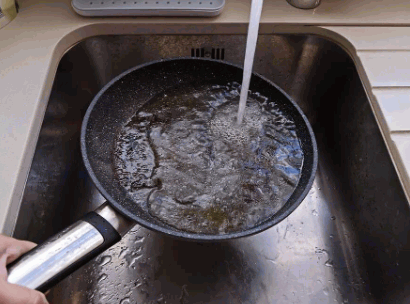
Regularly Clean The Sink Stopper
Regularly cleaning the sink stopper is essential for preventing blockages in sink drains by removing accumulated debris and maintaining proper water flow through the drainage system, ensuring the efficient operation of household plumbing.
Taking a few minutes every few weeks to clean the sink stopper can go a long way in keeping your plumbing in top condition. By avoiding blockages, you not only maintain a smooth water flow but also prevent potential leaks and costly repairs. This DIY solution is a proactive approach to plumbing maintenance, allowing you to enjoy uninterrupted functionality without the hassle of dealing with clogs and other drainage issues.
Run Hot Water After Each Use
Running hot water after each use of the sink helps in clearing residual particles, grease, and soap scum, promoting an eco-friendly cleaning approach that maintains the integrity of the piping system and prevents blockages in the sink trap.
This simple yet effective practice aids in preventing the accumulation of debris and clogs within the pipes. The hot water works to break down any build-up that may be clinging to the walls of the pipes, ensuring a smooth flow of water and minimizing the risk of blockages. By using hot water regularly, you can prolong the life of your sink trap and avoid costly repairs or replacements. This sustainable method not only benefits your home but also contributes to environmental conservation by reducing the need for harsh chemical cleaners.
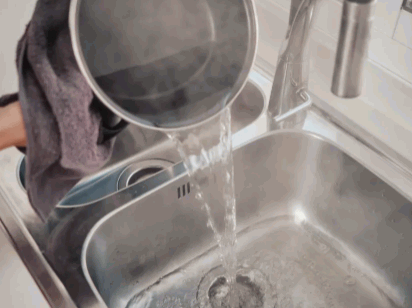
What Are The Signs Of A Clogged Drain In Sink?
Identifying the signs of a clogged drain in the sink is essential for timely intervention, such as observing slow drainage, foul odors, and potential water backup that indicate underlying issues requiring troubleshooting and effective remedies.
Gurgling sounds coming from the drain, water pooling around the sink, or recurring clogs can also point toward a drainage problem. When left unaddressed, a clogged sink can lead to more severe issues like pipe damage and costly repairs.
To tackle common blockages caused by soap scum and debris accumulation, using household products like Drano can help dissolve the blockage and restore proper water flow. Regular maintenance and avoiding excessive hair, grease, or food debris down the drain can prevent clogs and ensure smooth drainage.
Slow Drainage
Slow drainage in the sink is a clear indicator of a potential clog in the pipes, necessitating immediate steps to address the issue and restore efficient fluid drainage before it escalates into water backup problems.
- Several factors can contribute to slow drainage, such as the buildup of food particles, grease, or hair in the pipes over time.
- To improve fluid drainage, start by removing any visible debris or gunk from the sink using a plunger or a drain snake.
- Next, try pouring hot water down the drain to help dislodge any remaining blockages.
- For stubborn clogs, a mixture of baking soda and vinegar can be an effective natural remedy.
Regularly maintaining your sink drains by avoiding dumping large food scraps and greasy substances down the drain can prevent future issues. Taking these proactive measures can save you from the inconvenience and potential damage caused by water backup.
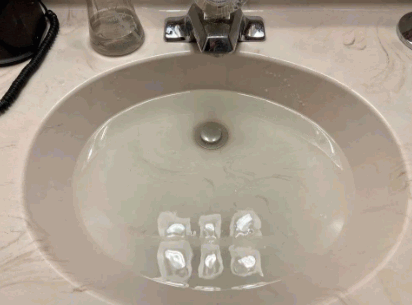
Foul Odors
Unpleasant odors emanating from the sink can signify bacterial growth in clogged drains, highlighting the need for regular maintenance schedules to eliminate odors and uphold proper hygiene standards in the kitchen environment.
When drains become clogged with food particles, grease, and other debris, it creates a breeding ground for bacteria that produce foul smells. These odors can quickly spread throughout the kitchen, impacting the overall ambiance.
By adhering to maintenance schedules that include regular cleaning and flushing of drains with hot water and vinegar, you can effectively prevent bacterial growth and eliminate unpleasant odors. Practicing good kitchen maintenance habits such as proper waste disposal and avoiding pouring oil and grease down the drain can help preserve the integrity of the drainage system and prevent clogs.
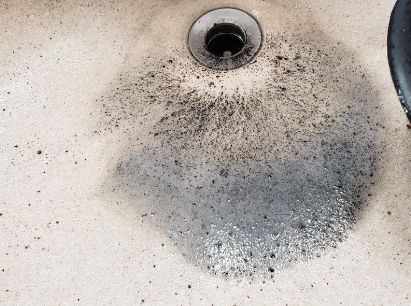
Overflowing Water
The presence of overflowing water in the sink signals a severe clog or blockage in the drainage system, requiring immediate attention to prevent extensive damage, potential sewer line issues, and emergency situations.
Addressing overflowing water promptly is crucial in averting costly repairs and health hazards.
When faced with a sink overflow, it is essential to first turn off the water supply to mitigate further flooding.
Next, assess the situation by identifying the cause of the blockage, whether it's due to food debris, grease buildup, or a foreign object obstructing the pipes.
Utilizing a plunger or plumbing snake can often dislodge minor clogs.
If the issue persists, contacting a professional plumber is advisable to prevent any sewer line complications that could arise from prolonged neglect.
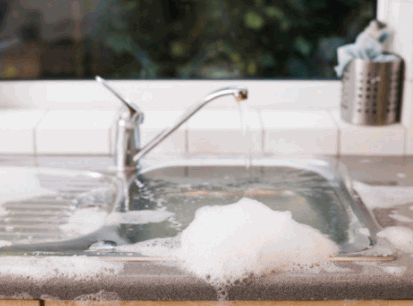
How To Clean A Clogged Drain In Sink?
Cleaning a clogged drain in the sink requires employing various methods such as using a plunger, attempting homemade drain cleaners, utilizing a drain snake, or seeking assistance from a professional plumber for stubborn blockages.
Plungers are a handy tool for dislodging minor clogs and can be effective when used correctly. Homemade drain cleaners, often made with ingredients like baking soda and vinegar, offer a natural and eco-friendly alternative that can help break down organic matter causing the blockage.
For more challenging clogs, a drain snake can be employed to reach deeper into the pipes and physically remove the obstruction. If DIY methods fail, it may be time to consider chemical drain cleaners, but caution should be exercised when using these due to their harsh nature.
Ultimately, if the clog persists, enlisting the expertise of a professional plumber can provide a long-term solution and address underlying issues within the plumbing system.
Use A Plunger
Utilizing a plunger is a common and effective DIY method for clearing clogged drains in sinks, offering a straightforward approach to resolving blockages and implementing quick fixes without the need for specialized tools.
The design of plungers creates a vacuum effect, allowing you to dislodge debris and restore proper water flow in the drain. When using a plunger, ensure a good seal is formed around the drain opening to maximize pressure.
For stubborn blockages, consider using a drain opener specifically formulated for sink drains. These products can help break down organic matter and grease that may be causing the clog, ensuring a more thorough cleaning process. Remember to read and follow the instructions on the drain opener for safe and effective usage.
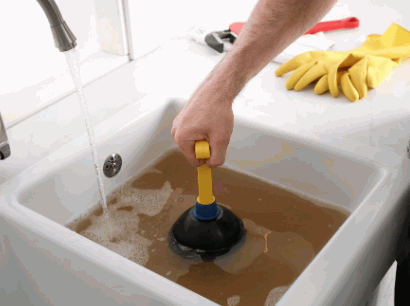
Try A Homemade Drain Cleaner
Experimenting with homemade drain cleaners like a mixture of baking soda and vinegar offers a natural, environmentally friendly solution to unclogging drains in sinks while effectively combating odors and maintaining optimal drainage services.
These eco-friendly alternatives are not only safe for your plumbing system but also reduce the need for harsh chemicals that can harm the environment. Baking soda acts as a gentle abrasive that helps dislodge debris and clear buildup, while vinegar's acidic properties work to dissolve grime and sanitize the pipes.
By using these ingredients together, you create a fizzing reaction that can break down stubborn clogs and leave your drains smelling fresh. For best results, pour a cup of baking soda followed by a mixture of vinegar and hot water down the drain, then cover and let it sit for about 30 minutes before flushing it with hot water.
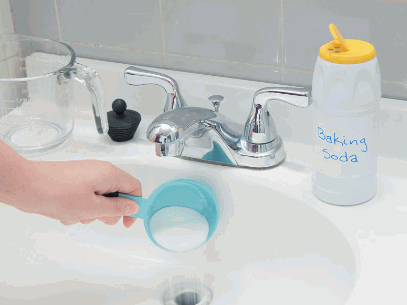
Use A Drain Snake
Employing a drain snake is a practical and cost-effective method for clearing obstructions caused by hair, grease, or debris in sink drains, offering an efficient troubleshooting guide to address various types of blockages effectively.
A drain snake's versatility lies in its ability to navigate through the twists and turns of pipes, dislodging blockages that may be difficult to reach with other methods. By manually turning the snake handle, individuals can control the insertion and movement within the drain, allowing them to precisely target the clog. Whether it's a hairball blocking the bathroom sink or grease buildup in the kitchen drainage, a drain snake can prove to be a handy tool for DIY maintenance, saving time and money on professional plumbing services.
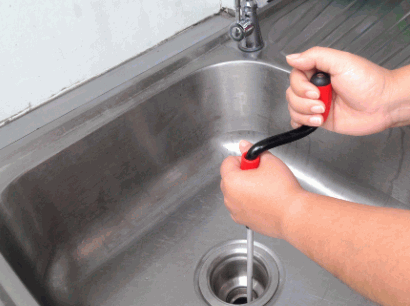
Call A Professional Plumber
Seeking assistance from a professional plumber is advisable for complex or persistent clogs in sink drains, ensuring comprehensive maintenance routines and expert plumbing services for resolving intricate pipe maintenance issues.
Professionals have the knowledge and tools required to accurately identify the root cause of the clog, whether it's due to a buildup of debris, grease, or a more serious underlying issue within the plumbing system. By entrusting the job to experienced plumbers, homeowners can rest assured that the problem will be addressed efficiently and effectively.
Regular maintenance check-ups by professionals can help prevent future clogs and ensure the long-term cleanliness and functionality of sink drains, ultimately saving time, money, and potential damage in the long run.
